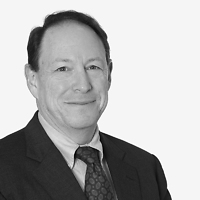Trending publication
Academic Fraud Investigations: What Universities Are Doing Wrong and How They Can Get it Right: Insights from Nutter's Jonathan Kotlier
Print PDFA panel of three professors posing inartfully phrased questions of a witness under oath, with members of the administration present, may not be the best way to gather relevant facts.
Q: How do institutions of higher education typically investigate allegations of academic fraud?
Jonathan L. Kotlier: They often select a panel of professors to investigate these charges. The university leadership picks professors who are well-regarded experts in the underlying subject area. Often the work being investigated is complicated and obtuse, so subject matter expertise is certainly important.
From a practical standpoint, however, this approach has many drawbacks and can lead to a process that drags on for months, if not years. Senior professors already have extremely busy schedules, and although an investigation into academic fraud may be very important to the institution, it most likely will not be the top priority of a busy professor. Further, coordinating the schedules of three professors (the typical number on a panel) can be very difficult and can lead to significant delays in the investigation. A drawn-out investigation is not only unfair to the accused, it also puts great strain on the accused’s colleagues, administrators, and the institution itself. It is in everyone’s interest to conduct a speedy and independent investigation and, therefore, a university should seriously consider hiring an outside law firm to conduct the investigation on behalf of the panel. The law firm can report its findings to the panel which can then make the ultimate decision.
Q: What sort of expertise is required when gathering evidence?
JK: Once a panel is chosen, their job is to gather information about what happened. Most university professors have no experience conducting such inquiries and managing documents and witnesses. A critical part of any investigation involves the preservation, collection, and review of electronic evidence—emails and other electronically stored information. Further, few college professors have any experience interviewing witnesses and asking probing questions in an investigation setting.
Q: What do universities need to keep in mind when conducting interviews with witnesses?
JK: Conducting witness interviews is perhaps the most crucial fact-finding step. In the typical university in-house investigation, interviews are conducted in front of the entire panel and generally under oath. If the witness is represented by an attorney, the attorney often isn’t allowed to participate in a speaking role. This rigid approach is likely not the most effective information-gathering technique.
There is an art to conducting an investigation through witness interviews. There are key strategy questions as to who to interview, when to conduct each interview, and what should be the format of the interview. For example, who do you speak to first? Are you gentle or aggressive? What documents do you share with each witness? What information is essential to the investigation? Should the conversation be informal or on the record and under oath?
The particular circumstances of each investigation will dictate how best to build the factual record. A panel of three professors posing inartfully phrased questions of a witness under oath, with members of the administration present, may not be the best way to gather relevant facts.
Q: What cues should universities take from corporations in order to avoid pitfalls?
JK: Universities should take the approach that corporations have been taking for decades. In the face of allegations of corporate misconduct, corporations typically retain outside counsel to conduct an independent investigation, usually under the supervision of a board committee convened for the special purpose of overseeing the investigation. The independent investigator reports to and acts at the direction of the special committee. Similarly, in an academic setting, attorney investigators could report to an independent panel of the professors chosen by the institution.
The independent investigation by outside counsel has become a valuable tool for corporations facing scrutiny from regulators, shareholders, and even law enforcement. For universities, because the research being investigated often involves federal money, when allegations of academic fraud surface, scrutiny from law enforcement may soon follow. Just as corporations do, universities should prepare themselves for such scrutiny by retaining an independent counsel. Doing so will increase the likelihood that the investigation will be unbiased, effective, and done in a timely manner. And maybe cloak the investigation in the protection of the attorney-client privilege.
Interested in Learning More? Contact:
Jonathan L. Kotlier
Chair, White Collar Defense practice group
617.439.2683
This update is for information purposes only and should not be construed as legal advice on any specific facts or circumstances. Under the rules of the Supreme Judicial Court of Massachusetts, this material may be considered as advertising.
